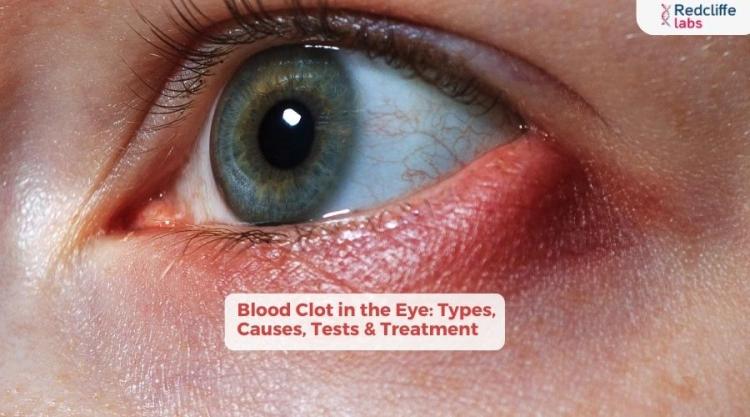Thyroid and Diabetes: Is there a Connection?

Medically Reviewed By
Dr Divya Rohra
Written By Kirti Saxena
on Jun 11, 2024
Last Edit Made By Kirti Saxena
on Jul 19, 2025

Did you know that every 1 in 10 adults have diabetes and every 1 in 15 adults struggle with some form of thyroid disease? Both these conditions result from endocrine dysfunction when the production and release of hormones are disrupted.
Thyroid disorders and Diabetes are often labeled as comorbid diseases, but is there a connection between the two?
If you are curious about this, too, then you’ve come to the right place. This article discusses the possible connection between thyroid and diabetes and how they might affect each other.
Can you have Thyroid and Diabetes together?
It is common for thyroid and diabetes to happen together. Research shows that about 20% of people with Type 2 Diabetes also have Thyroid Disorders. Studies also show that people with Thyroid disorders had a 26% increased risk of developing Diabetes. Both of these diseases share a thing in common- both result in endocrine dysfunction.
Thyroid disorders often cause disruptions in metabolic activities, which also affect blood sugar levels, leading to an increased risk of diabetes.
Diabetes indirectly affects the production and release of thyroid hormones, leading to the development of thyroid disorders.
A few common causes of Thyroid and Diabetes
Several underlying medical conditions or dietary habits can cause thyroid and diabetes. Let’s examine some common causes of these diseases.
Thyroid
Thyroid disorders are generally classified into two types- Hypothyroidism and Hyperthyroidism. Both of them are caused due to different reasons. Here are some common causes:
Hypothyroidism
- Hashimoto’s disease is an autoimmune disorder that affects the thyroid gland. It lowers the production of thyroid hormone, causing Hypothyroidism.
- Iodine deficiency: It is one of the most common causes of hyperthyroidism.
- Congenital hypothyroidism is a deficiency of thyroid hormone levels due to thyroid gland disorders present at birth.
- Thyroid Removal: A surgical removal of the thyroid gland for the treatment of hyperthyroidism can lead to hypothyroidism.
Hyperthyroidism
- Graves’ disease is a condition that affects the thyroid gland, causing it to produce excess thyroid hormones.
- Thyroiditis is a thyroid gland inflammation, a common cause of hyperthyroidism.
- Overactive thyroid nodules: The thyroid nodules may start producing excess thyroid hormones for unknown reasons, causing hyperthyroidism.
- Excess iodine consumption is a direct cause of hyperthyroidism linked to overactive thyroid production.
Also Read: Food That Helps in Managing Thyroid Levels
Diabetes
Diabetes is an endocrine disorder and can be classified into various types, with Type 2 being the most common. Here are some common causes of Diabetes:
- Insulin resistance is when your body develops insulin resistance, causing excess insulin production and high blood sugar levels.
- Pancreatic damage: physical damage to the pancreas can affect the body’s ability to produce insulin, making it more susceptible to diabetes.
- Genetic mutations: MODY, a rare type of diabetes, can develop due to certain genetic mutations in a single gene.
- Autoimmune disease: A common cause of Type 1 diabetes is when your immune system starts attacking your pancreas and affecting insulin production.
- Obesity can cause insulin resistance, which can further lead to diabetic disorders.
Thyroid Disease and Blood Sugar
Thyroid hormones regulate the metabolic processes and functions in the body. Thyroid diseases disrupt the balance of these hormones, causing a deficiency or excess production. These hormonal imbalances often cause changes in blood sugar levels.
Excess thyroid hormone production hastens the metabolic process, which may eventually cause a glucose intolerance. It also causes excess sugar accumulation in the bloodstream, leading to hyperglycemia. These conditions can collectively lead to diabetes and other metabolic disorders.
Hypothyroidism slows metabolic processes, making it harder for the body to convert glucose into energy. It also causes a surge in insulin levels in the bloodstream, leading to a drop in blood sugar levels. These factors may lead to diabetic disorders and hypoglycemia.
Thyroid Disease and Insulin
Thyroid disorders can affect the production and efficiency of insulin in the body. Thyroid hormones regulate metabolic activities in the body, including carbohydrate metabolism. Both hypothyroidism and hyperthyroidism can affect insulin levels in the body.
Hyperthyroidism is often associated with insulin resistance, a condition in which the body becomes less responsive to insulin. This happens due to increased levels of fatty acids in the bloodstream. Insulin resistance causes high blood sugar levels, and people may need to take insulin shots to control their blood sugar levels.
Hypothyroidism, on the other hand, slows metabolic activities, causing a low glucose breakdown and a surge in insulin levels in the bloodstream. This can cause a sharp drop in blood sugar levels, resulting in hypoglycemia.
Effect of Diabetes on Thyroid Disorders
Thyroid disorders and Diabetes are comorbid diseases, meaning that one of them often leads to the other. Just as thyroid levels affect diabetes, the same goes the other way.
Type 2 diabetes can affect TSH(Thyroid Stimulating Hormone) production and also disrupt the conversion process of T4 hormone into T3 hormone. This disruption may lead to a deficiency of thyroid hormones in the system, causing hypothyroidism.
If left untreated, Type 2 diabetes can also cause the multiplication of thyroid gland tissues, resulting in an enlarged thyroid gland. Moreover, these conditions may collectively result in other medical complications like insulin resistance, goiter, bone problems, fertility issues, etc.
Also Read: Diabetes and the Increasing Risk of Heart Disease - Find The Connection
The Key Takeaway
Research shows that there is a strong connection between thyroid disorders and diabetes, and one disease increases the risk of the other. Thyroid disorders may lead to hyperglycemia, hypoglycemia, and insulin resistance, while diabetes may cause hypothyroidism. It is important to keep track of both these conditions. If you are diagnosed with either one, you should monitor your health closely and look for any signs of the other disease.
Regular health checkups and medical tests can help prevent and reduce the risk of these diseases and help you monitor their severity if you have them. Have you had your blood sugar and thyroid levels checked?
If you don’t remember the last time you took a health test for either, you should book a Thyroid Profile Test and Blood sugar Test at Redcliffe Labs today! We feature the best testing facilities with well-equipped, state-of-the-art equipment, ensuring on-time delivery and 100% report correctness!
FAQs
Q- Is too much sugar bad for the thyroid?
Yes. An excess amount of sugar consumption can lead to complications like high blood sugar, inflammation, and thyroid hormone imbalance.
Q- Can thyroid medication affect blood sugar?
Yes. Although it is uncommon, side effects of anti-thyroid drugs like thiamazole can affect blood sugar levels.
Q- Can diabetes cause thyroid nodules?
Yes. Type 2 diabetes can cause an abnormal multiplication of thyroid tissues, sometimes leading to the development of thyroid nodules.
Leave a comment
1 Comments
Brajendra kumar singh
Aug 26, 2024 at 4:42 PM.
Mera THS 10.46 HAI AUR MERA HB1C 6.3 HAI EAKA NIDAN KASE HOGA
MyHealth Team
Aug 27, 2024 at 2:22 PM.
TSH 10.46 और HbA1c 6.3 दोनों ही उच्च हैं। TSH का उच्च स्तर हाइपोथायरॉइडिज़्म और HbA1c का उच्च स्तर मधुमेह को संकेत करता है। अपने डॉक्टर से परामर्श लें और उपचार योजना पर चर्चा करें।



